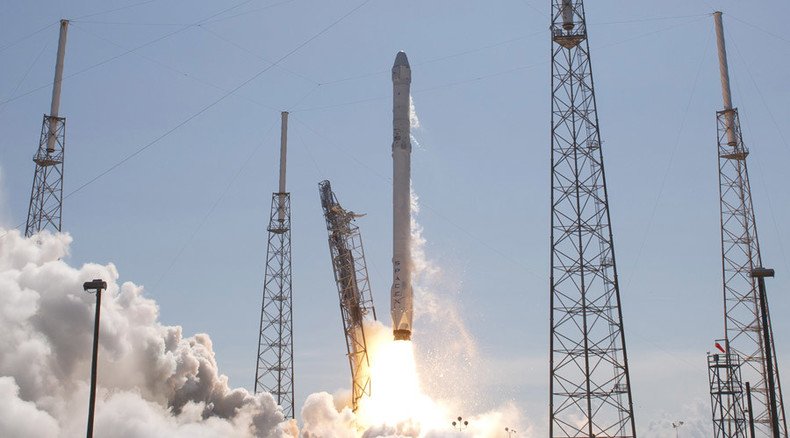Commercial space industry avoids regulation until 2023 once Obama signs new bill

Space is about to be open for business in a big way. Congress passed legislation on Friday leaving the cosmos industry largely unregulated for the next eight years, despite 2014 testimony from a top aviation bureaucrat calling for FAA oversight.
The Senate passed HR 2262, or the US Commercial Space Launch Competitiveness Act, last week and the House of Representatives did the same Monday – President Barack Obama is expected to sign it. The move will keep the Federal Aviation Administration (FAA) at bay until at least 2023.
“It allows the industry to grow, to test, and to develop without this overshadow of the regulatory hammer coming down on them,” the president of the non-profit Commercial Spaceflight Federation, Eric Stallmer, told The Verge.
SpaceX, Blue Origin, and Virgin Galactic have welcomed HR 2262, which also renews the International Space Station’s designation as a national laboratory to the end of 2024.
Space cadets: 2 small girls send home-made craft into stratosphere, film on #GoPro (VIDEO) http://t.co/kcJ0l8bnkZpic.twitter.com/cG4a5n7LDG
— RT America (@RT_America) September 14, 2015Less enthusiastic is the FAA. Last year, the agency’s Office of Commercial Space Transportation head, George Nield, urged the House Subcommittee on Space to end the moratorium on regulations for the private space industry set out in the Commercial Space Launch Amendments Act of 2004.
“As the prospects for a greater number of commercial transportation vehicles in space increase, it is time to consider closing the current regulatory and safety gap between launch and reentry,” Nield testified in February 2014.
A “learning period” is the phrase used in the legislation to indicate a period when the burgeoning market will be allowed time to grow and for information to be collected to guide inevitable codes and statutes. September 30th, 2023 marks the end of that period, unless it is extended again. In the meantime, the FAA’s only obligation is to license vehicles for launch and reentry.
Virgin Galactic spectacularly tests main stage engine for LauncherOne spacecraft (VIDEO) http://t.co/W6P7oLxpgspic.twitter.com/Uvgh85ilwA
— RT America (@RT_America) October 1, 2015In the 2014 testimony, the FAA conveyed its readiness to set regulations regarding collision prevention. Other areas of possible regulation could include designs of engines and rockets, though that didn’t come up in the testimony.
Once in space, private parties can claim as their own any “space stuff” they can bring back home, though there is one exception: no biological organisms allowed. That isn’t discouraging asteroid miners like Planetary Resources, Inc., however.
“We are proud to have the support of Congress. Throughout history, governments have spurred growth in new frontiers by instituting sensible legislation. Long ago, The Homestead Act of 1862 advocated for the search for gold and timber, and today, H.R. 2262 fuels a new economy that will open many avenues for the continual growth and prosperity of humanity. This off-planet economy will forever change our lives for the better here on Earth,” Planetary Resources President and Chief Engineer Chris Lewicki said in a statement.












